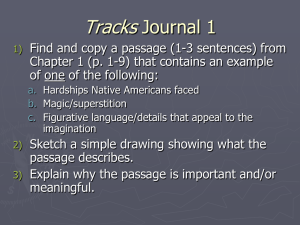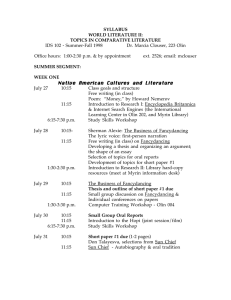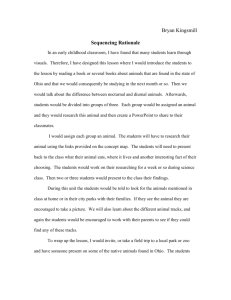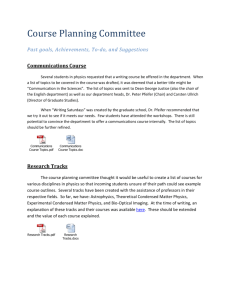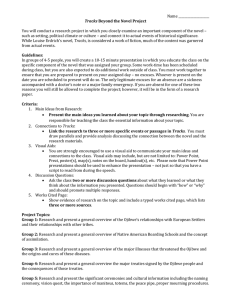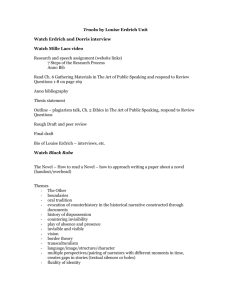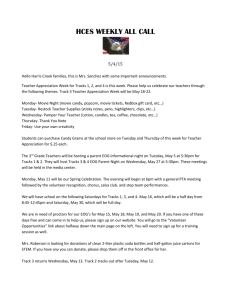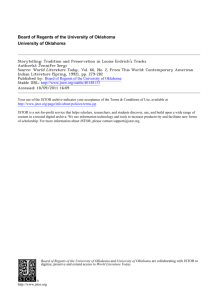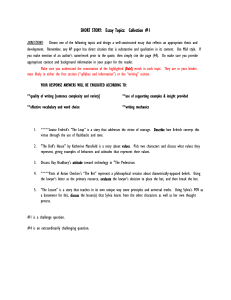Mary Seliger Race, Rights, and Resistance in Louise Erdrich's
advertisement
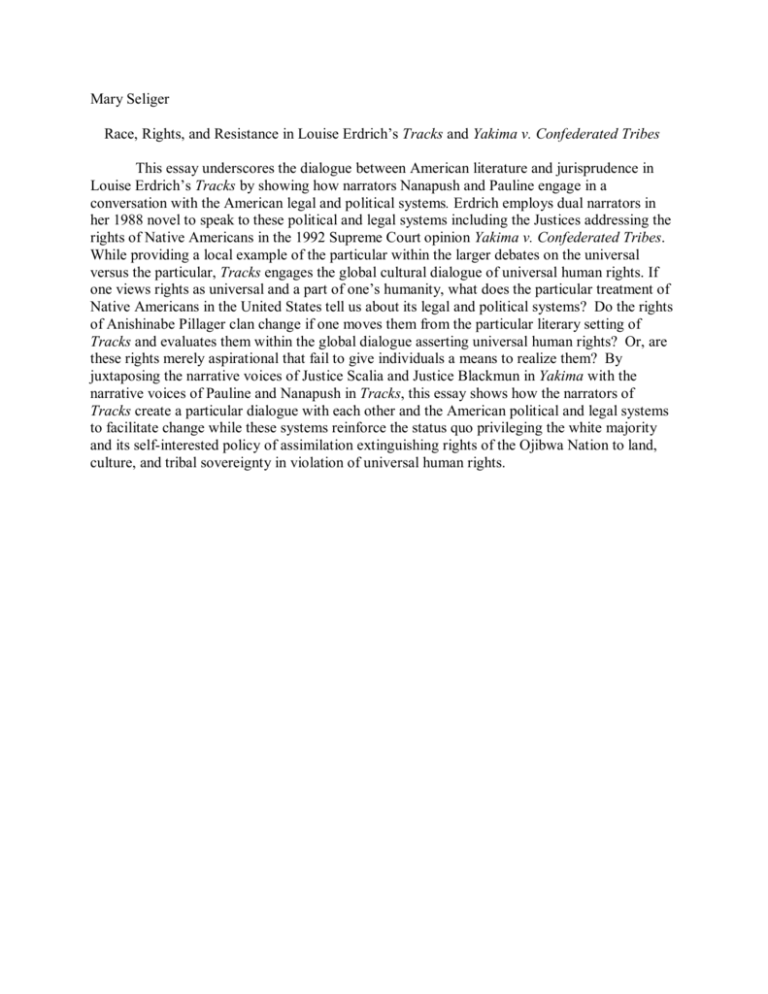
Mary Seliger Race, Rights, and Resistance in Louise Erdrich’s Tracks and Yakima v. Confederated Tribes This essay underscores the dialogue between American literature and jurisprudence in Louise Erdrich’s Tracks by showing how narrators Nanapush and Pauline engage in a conversation with the American legal and political systems. Erdrich employs dual narrators in her 1988 novel to speak to these political and legal systems including the Justices addressing the rights of Native Americans in the 1992 Supreme Court opinion Yakima v. Confederated Tribes. While providing a local example of the particular within the larger debates on the universal versus the particular, Tracks engages the global cultural dialogue of universal human rights. If one views rights as universal and a part of one’s humanity, what does the particular treatment of Native Americans in the United States tell us about its legal and political systems? Do the rights of Anishinabe Pillager clan change if one moves them from the particular literary setting of Tracks and evaluates them within the global dialogue asserting universal human rights? Or, are these rights merely aspirational that fail to give individuals a means to realize them? By juxtaposing the narrative voices of Justice Scalia and Justice Blackmun in Yakima with the narrative voices of Pauline and Nanapush in Tracks, this essay shows how the narrators of Tracks create a particular dialogue with each other and the American political and legal systems to facilitate change while these systems reinforce the status quo privileging the white majority and its self-interested policy of assimilation extinguishing rights of the Ojibwa Nation to land, culture, and tribal sovereignty in violation of universal human rights.

